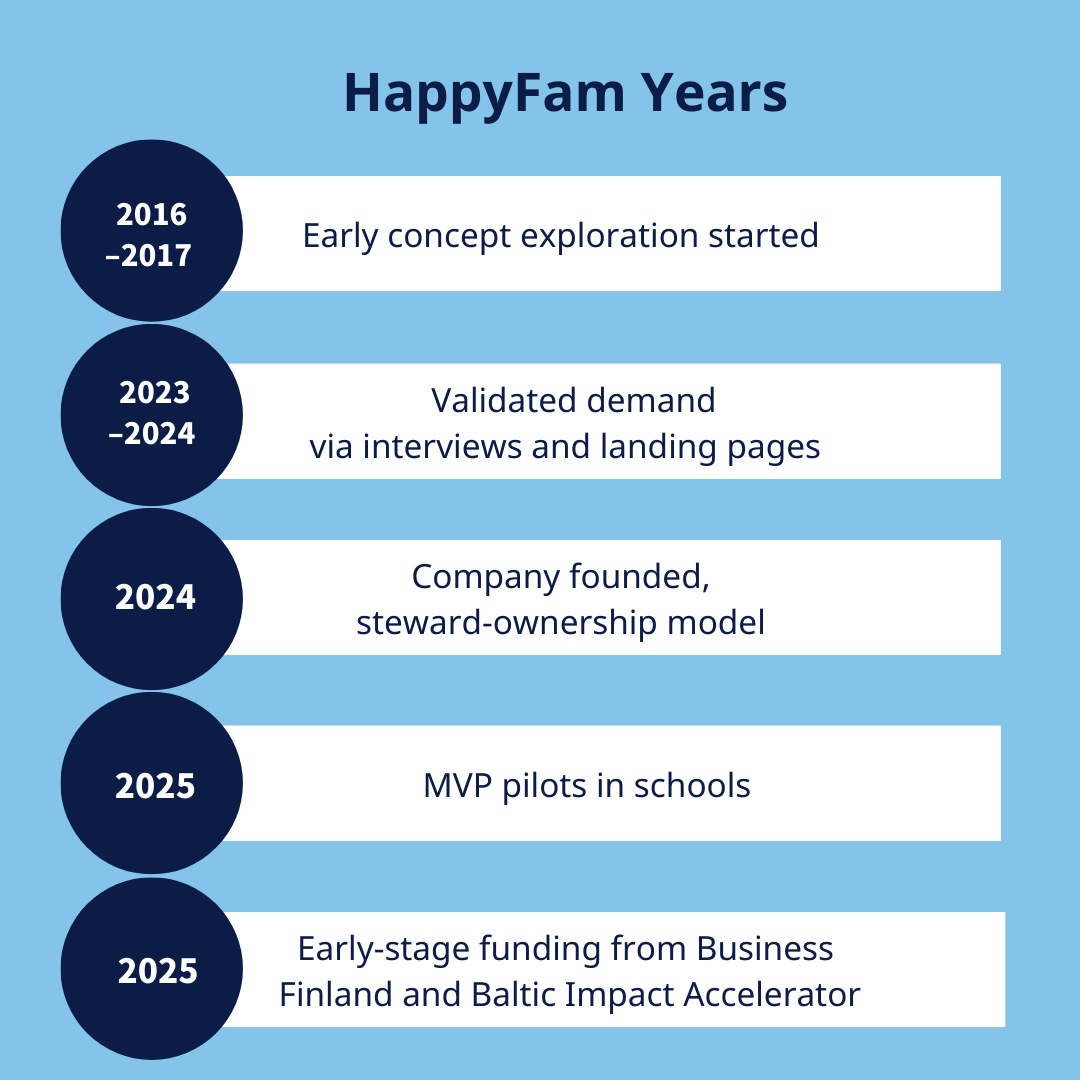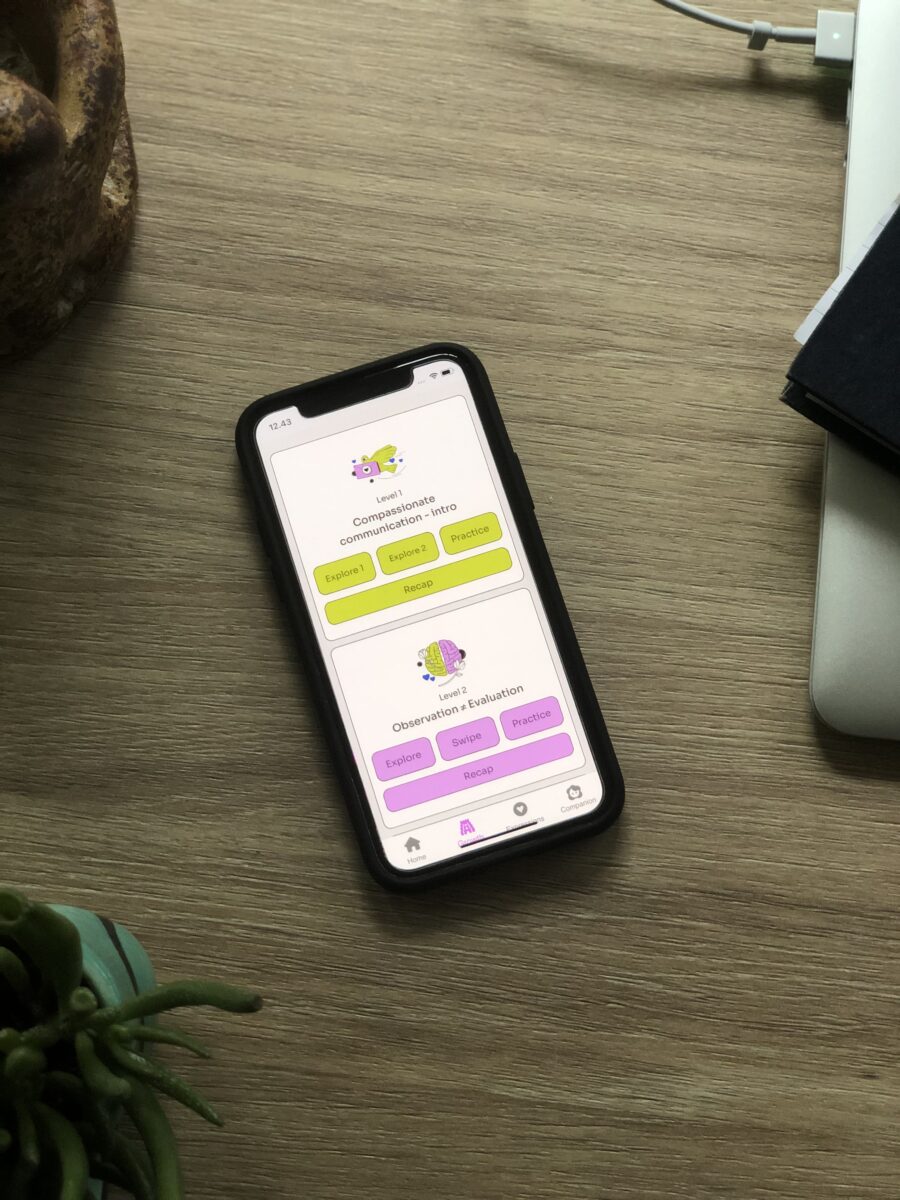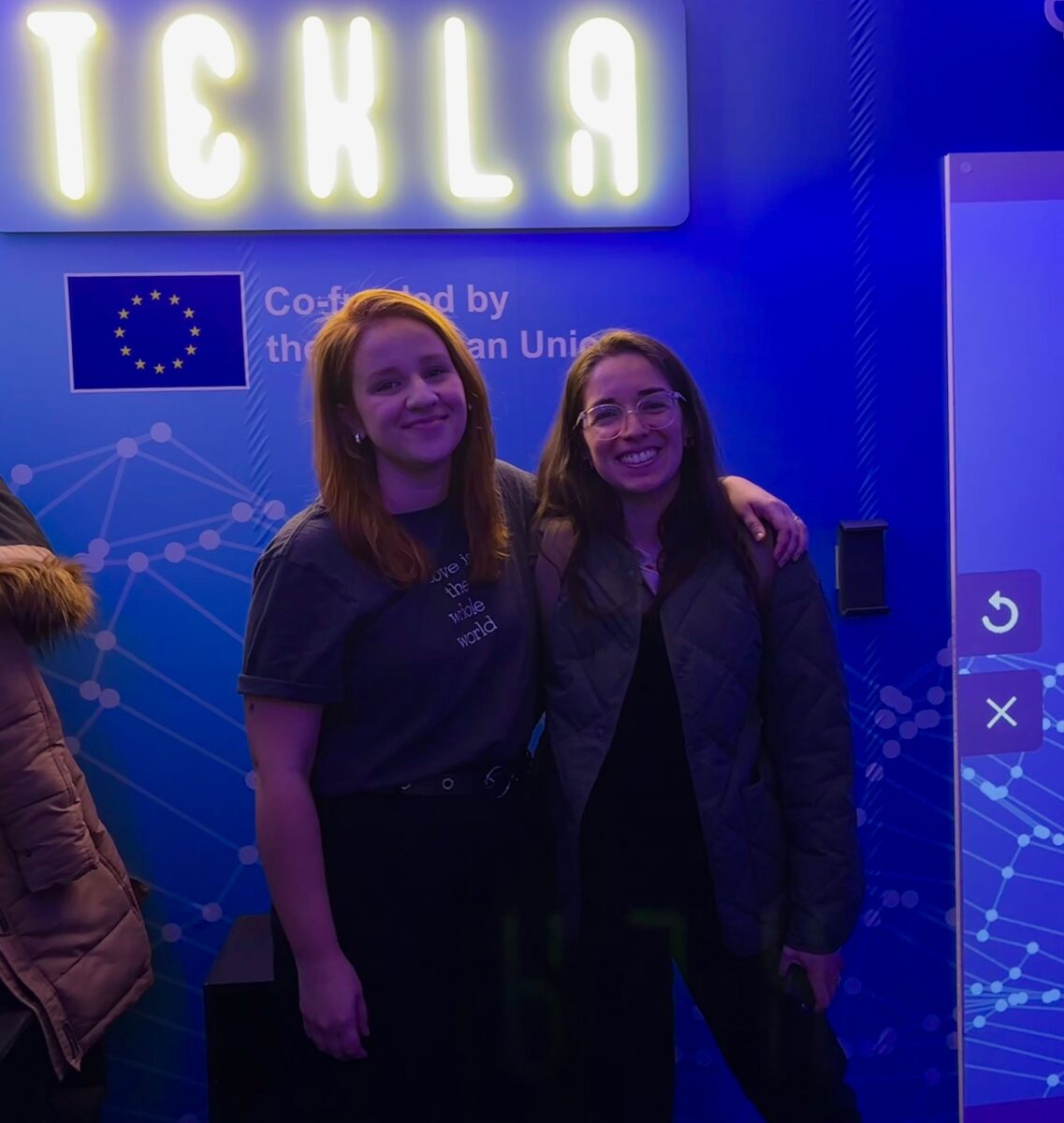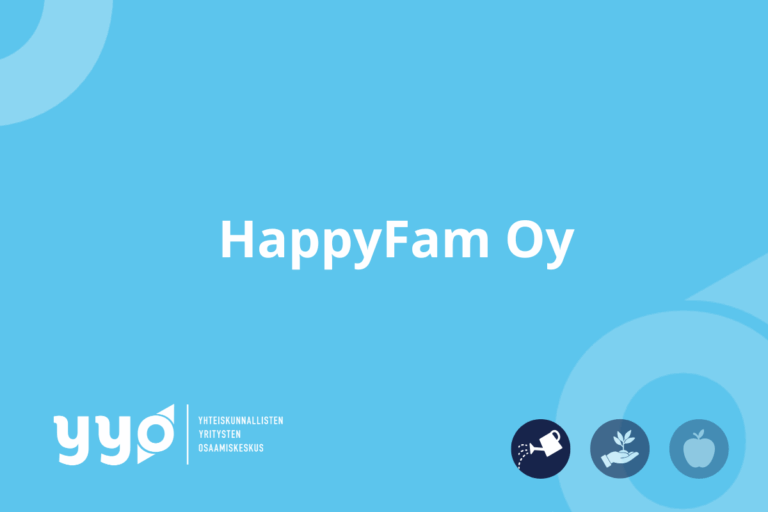Lue juttu suomeksi.
HappyFam is a young company with a big mission: helping families with children cultivate inner development and resilience meaningful for this 21st polycrisis century.

It builds on the Inner Development Goals framework and uses the best of neuroscience, psychology and learning science.
– On a higher level we exist to contribute to shaping a more peaceful and thriving world, says founder Leyla Nasib.
The spark came from a long-standing question: how can we help humanity act from its better side as a collective? Through years of exploration from UN innovation camps to horizontal organizing Leyla discovered the Inner Development Goals and saw the family as a powerful ecosystem for change. Recent global moves, such as OECD’s new curriculum for human flourishing, confirmed that the time was right.
In practice, HappyFam helps families and schools by playful in-person and digital learning experiences rooted in leading research.
Don’t block your impact potential
From the start HappyFam has applied impact thinking to shape every choice. Not just the product, but also financing, ownership, supplier relations, and culture.
– We need to focus on these questions at the very beginning. Otherwise, you can lock yourself into structures that block impact later, Leyla says.
This approach has led HappyFam to avoid traditional VC paths in favor of steward ownership and impact funds.

Image 1. The HappyFam app offers playful learning experiences that help people act smarter and more constructively.
Another piece of advice is to approach impact holistically. Too often, startups focus only on CO₂, amount of donations, or certain social cause.
– We are too much in a crisis to do this, Leyla points out.
Kate Raworth’s Doughnut Economics offers a key lens: considering impact across seven dimensions, from governance and finance to social and environmental relations.
Toolbox of impact by iteration
HappyFam’s early-stage toolbox includes systems mapping, Theory of Change (ToC), and early-stage ideas for a set of metrics. Systems mapping is important to understand the problem they are solving and assess their own fit within it. HappyFam’s ToC has already gone through a couple of iterations, and together with systems mapping it serves as an internal tool for clarity and spotting new opportunities for impact creation.
Measuring impact is a work in progress.
– It is is complex, less tangible and some things can only be measured in really long-term, Leyla explains.
Early hypotheses are in place but refining them will require longer pilots and continued iteration with stakeholders.

Image 2. Leyla Nasib (right) is the founder of HappyFam.
A game of Tetris
The journey is still in early pilot stages. Money is tight, the work is messy, and opportunities must be pieced together like a game of Tetris. But for Leyla, there’s no other way:
– Whether we succeed or not, starting with a holistic impact mindset is the only way I know how to build something that matters.
Leyla’s tips for further explorations
Writer Saila Tykkyläinen. The article is based on an interview with HappyFam founder Leyla Nasib.
